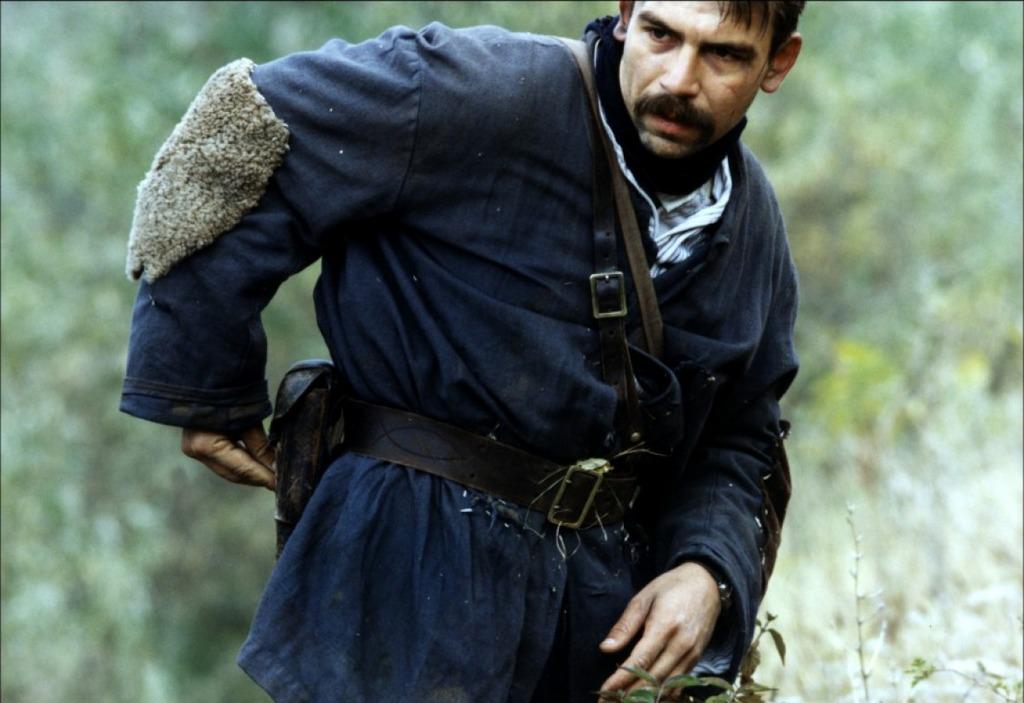France, 1996
Directed by Bertrand Tavernier
With Philippe Torreton (Captain Conan), Samuel Le Bihan (Lieutenant Norbert), Bernard Le Coq (Lieutenant de Scève), François Berléand (Commander Bouvier), Claude Rich (General Pitard de Lauzier)

On the one hand there is Lieutenant Conan, a conscript who is later in the story promoted to the rank of captain, and the group of soldiers he picked up from anywhere, including the military’s jails. They are commandos, making daring attacks beyond the enemy lines, slashing and beating their way through the surprised troops. Conan is a lively, blunt, and hard-boiled character who does not brook rules, prorprieties, and pretenses. He loves to stay with his men and is truly dedicated to their well-being.
On the other hand there are the officers of the French army, men who have embraced the military career often because of their distinguished social background and are deeply aware of the prestige and power of their institution: fellow Lieutenant de Scève, Commander Bouvier, and General Pitard de Lauzier. They are sticklers for rules and have a deep sense of entitlement, even if their actions on the ground are fairly modest, their command of the situation shaky and their relationships with the soldiers remarkably distant (though de Scève is far more aware of what the troops need).
To quote Conan: there are on one side the warriors and on the other the soldiers. But it could be also pointed that there is the opposition between the conscripts and the career soldiers.
Between the flamboyant commando and the confident elite there is Norbert. He is also a conscript and a lieutenant. He fits in the system, yet he admires Conan; both officers are actually good friends, which bemuses a man like de Scève. Though comfortable with his job and his sentiments, Norbert is somehow in an awkward position.
And it is going to be even tougher. As part of the French armies are sent after the November 1918 Armistice to the Balkans to help allies to stabilize and thwart the threat of a Communist revolution, Norbert is assigned to a job of prosecutor in the military justice system. The biggest case he has to handle copes with a heist that occurred in a nightclub. Some of Conan’s men are suspects and Conan clearly resents the investigation; both young men almost fall out over the case. Norbert still manages to put the commandos on trial and then avoids that they get the highest punishment, a feat that is ironically praised by de Scève. Then, Norbert must deal with a young man who was under the command of de Scève and stands accused of being a deserter and a traitor. Norbert thinks this is unfair and Conan tries to help him make the case – but, as de Scève wanted, the soldier is sentenced to death.
Those cases highlight the film’s real topic: the examination of the fairness, or rather the lack of it, inside the French armies. They rightly belong to the victors’ camp and the military leaders would be keen on defending the unity in action of the troops. But not every soldier fought the same way and with the same support from the hierarchy. Rules were not always applied and indeed should not have been in some cases to clinch the victory and should be considered irrelevant in other cases. Is it fair to send to jail a soldier who took away a couple of blankets while some commanders have never been able to provide their men all the means and support they needed?
The candid conversations that Conan and Norbert have cleverly illustrate and deepen this debate. They take place amid a growing malaise fueled by the extraordinary situation of these troops wandering across Romania and Bulgaria without explanations and by the contrasting attitudes of both the officers and the soldiers. The obsession of Commandant Bouvier to get his officers come on time at the mess is ridiculous and petty-minded and far away from the real worries and disappointments of the soldiers who cannot grasp why there are still on assignment even as the armistice has been signed months ago. When some of them publicly complain, they are readily treated as traitors. But nobody would challenge the blatant ineffectiveness of Pitard de Lauzier. The question raises again: is it fair?
The poignant epilogue, unfolding well after they were at long last demobilized, is a final encounter between Conan and Norbert. If the latter is a successful teacher, a fine and healthy fellow, the former has only a few months to live, stuck in the small town where he used to live and work. The dialogue emphasized the bitterness of the warrior, dead sure his sacrifice would be forgotten. By telling his story “Capitaine Conan” actually intents to avoid such a failure. The hectic and swashbuckling narration is unabashedly sympathetic to Conan and highly sarcastic towards the military leadership. Seven years after “La vie et rien d’autre”, Bertrand Tavernier has again put the spotlight on a colorful and stubborn character who is immediately relatable to and convincing, thanks in part to a brash and solid performance by the lead actor (here Philippe Torreton, seven years after another Philippe, family name Noiret) and takes a critical look at the official ideas on the war. The director mixes impressive and touching reconstructions of war events and military life with a careful psychological observation and a great sense of humor. He makes his point in a clear and effective way, even as his satire can feels incredibly harsh.

